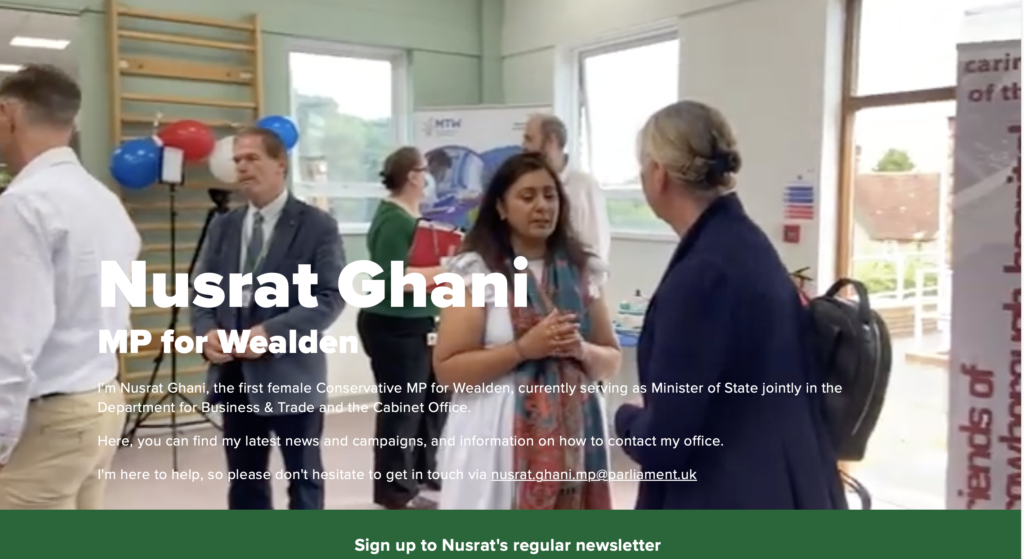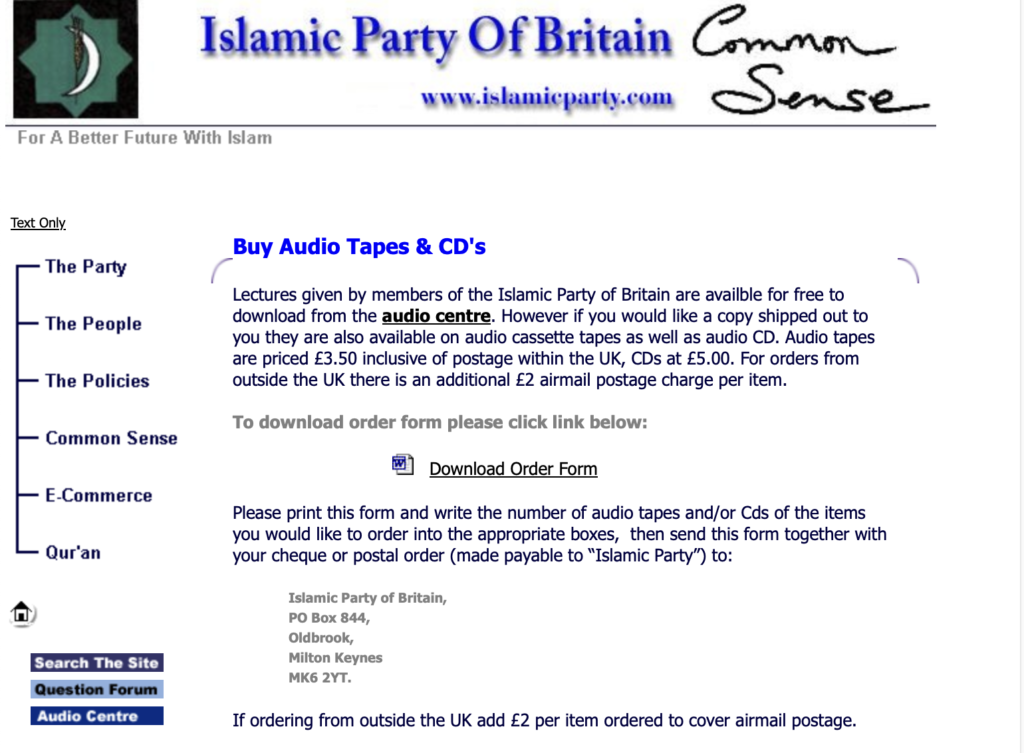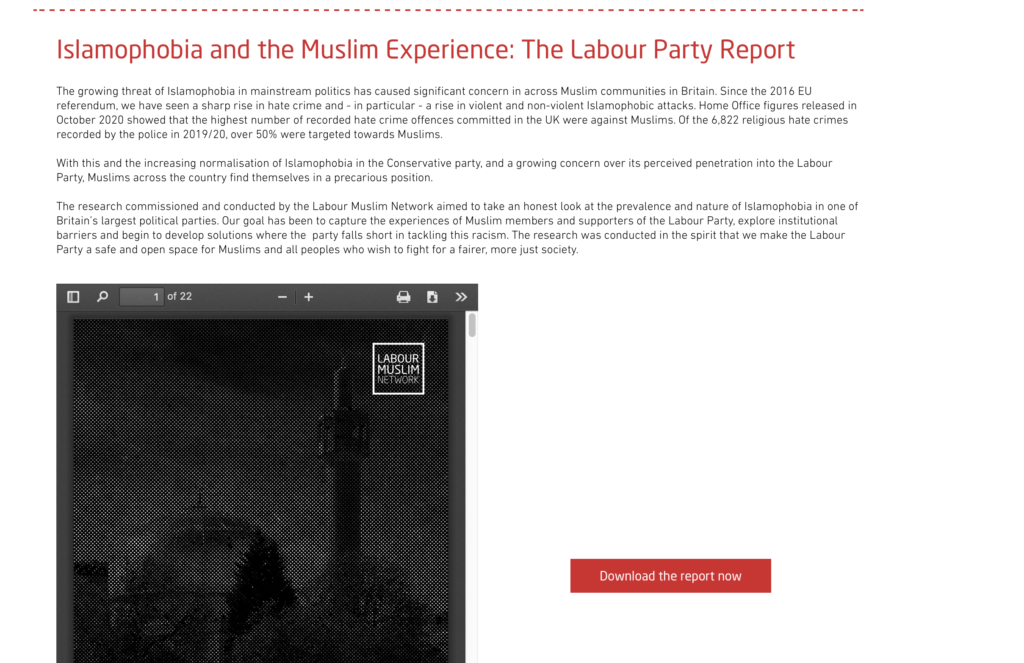The Digital British Islam Political Organisations collection appears as part of the Digital British Islam project. This offers a taster of a range of different websites broadly categorised as political. The personal websites maintained by elected politicians generally follow a common model, often one adhering to a party’s template or guidelines. This type of website serves as an accessible landing page for members of the public seeking to find out more information about the politician, their background, parliamentary activities as well as the causes and policies that they are involved with. Some of the content is specifically aimed at constituents – this includes details of surgery times, local facilities and services and other constituency information.
Websites of political figures are not especially interactive, but they do have prominently signposted contact details and very visible links to their different social media accounts. Visuals play a key role in the websites of political figures. We see images portraying these figures in their communities and fulfilling aspects of their elected roles. For instance, the website of Conservative MP for Wealden, Nus Ghani’s website opens with a video compilation on the front page featuring her at a school, on a farm, opening a race, in a speaking at a community event, drawing a pint at a pub, at a supermarket, butchers, hospital, and speaking on the local radio, among other settings. These images also play a role in setting out transparency and accountability to constituents as they demonstrate the everyday activities of these political figures. Equally, images with respective party leaders and other political colleagues and allies are foregrounded – again emphasising the centrality of personability and accessibility.

As for political movements and organisations, their online presence is more varied in content, target audience and dynamism. In terms of content, the history – of the movements and of the communities they serve – are generally given importance, presumably to contextualise these organisations and demonstrate their relevance and their importance. So, the Association of British Muslims provides a chronology dating back to 1889, and a longer one surveying the history of Islam in the UK. The Muslim World League London Office tells us about its presence in London since 1982, but also contextualises itself globally with its Saudi-based parent body, and its establishment as a charity in the UK. Similarly, Hizb-ut-Tahrir Britain (website now taken down after proscription on 18th January 2024) provided historical and geographical context linking it to the parent body and global movement founded in mid 20th Century Jordan.
An interesting point of comparison between the websites of individual political figures and those of organisations, is that the former are often more regularly updated. It makes sense that a politician seeking re-election will keep their web content up to date, since often the website is where potential voters and political allies will first seek to connect with them. The British Muslim political parties and organisations we profile in this list seem less concerned (or perhaps not adequately resourced) to keep their web pages up to date. For instance, the page of the Islamic Party of Britain does not appear to have been significantly updated with content since 2004, and, notably, still seems to offer content on audio cassette and CDs for sale.

Another category profiled in this list is that of Muslim networks affiliated to major political parties, namely the Conservative and Labour parties. The content of these websites reflects their respective agendas, and their position with relation to their political party. For the Conservative Muslim Forum, it is very much about amplifying and supporting the party line among Muslim voters, whereas for the Labour Muslim Network, we can detect a line that is more independent, and sometimes critical of the formal party’s position. That the latter seems to be run largely by younger activist members seems to explain its critical line. As I have noted elsewhere, the activism of younger Muslims has tended to take a more unapologetic, strident line, as compared with the more conciliatory tone preferred by older generations of activists who have prioritised the pursuit of dialogue within establishment spaces.1

This list captures a disparate selection of the range of political platforms emerging from British Muslim organisations and individuals. You can find out more about these and other political platforms online by exploring the Digital British Islam archive. This collection is a work in progress. We intend to expand our analysis and content tagging in due course, connecting different aspects of the project. We will make further inroads into collecting and drilling down on content as Digital British Islam progresses. In the meantime, we hope you will enjoy exploring Digital British Islam’s initial archive when it is launched and look forward to user feedback in due course.
1 Elshayyal, Khadijah Muslim Identity Politics: Islam, activism and equality in Britain (Bloomsbury, 2019).
